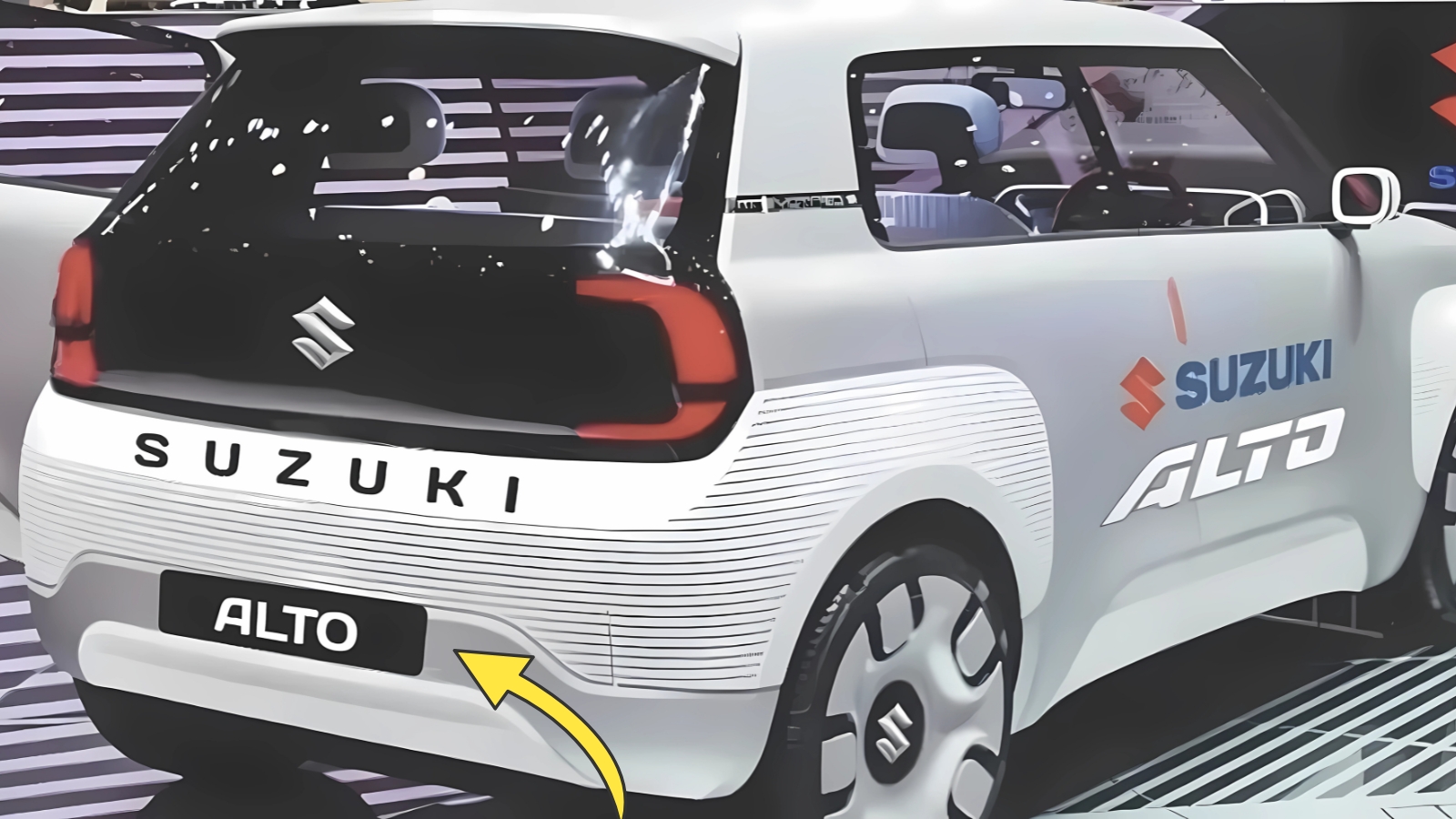Maruti Alto EV: In a bold move that could reshape India’s electric vehicle landscape, Maruti Suzuki has finally taken the wraps off its much-anticipated Alto Electric. Priced at a surprisingly competitive ₹4 lakh, the new EV promises to deliver an impressive 560km range on a single charge – a figure that would put it ahead of many premium electric vehicles costing three times as much.
Small Car, Big Ambitions
The Alto has been Maruti’s bread and butter for decades, with millions of units sold since its introduction. Now, the company is betting that its electric avatar will help reverse the declining trend in small car sales that has plagued the manufacturer in recent years.
“We’ve been watching the small car segment shrink as SUVs take over the market,” said a senior Maruti executive who didn’t want to be named. “But we believe electrification opens up new possibilities for affordable mobility, and the Alto EV represents our commitment to this vision.”

The timing couldn’t be more significant. Maruti’s sales in the financial year 2025 increased by just 0.05 percent compared to the previous year, largely due to the massive decline in small car sales. The company’s market share has steadily fallen to 40.61 percent by the end of FY2025, putting pressure on the automaker to innovate.
Technical Specifications That Impress
What makes the Alto EV particularly impressive isn’t just its price point but the technology packed into its diminutive frame. The car features a 30kWh lithium-ion battery pack that’s been developed in collaboration with Suzuki’s Japanese R&D division and TOSHIBA.
Despite its small footprint, the Alto EV doesn’t compromise on features. It comes equipped with regenerative braking, multiple driving modes, and a 7-inch touchscreen infotainment system with smartphone connectivity. Safety features include dual airbags, ABS with EBD, and a rear parking camera – impressive for a car in this price segment.
Government Support Crucial for Success
The launch comes at a time when the Indian government is considering easing Corporate Average Fuel Efficiency (CAFE) norms for small cars weighing less than 1,000kg. This potential regulatory relief could further bolster Maruti’s electric strategy.
“There should be more benefit for small cars. Maruti has been asking for that and we agree,” a senior government official was quoted saying in recent reports. This policy shift, if implemented, would reduce the pressure on automakers to electrify their smallest models, though Maruti is clearly forging ahead regardless.
Production and Availability
Production of the Alto EV will begin at Maruti’s Gujarat facility in August 2025, with deliveries expected to commence in September. The company plans to produce 10,000 units in the first year, with capacity increasing based on market response.
“We’re taking a measured approach to production,” said the company spokesperson. “While we’re confident in the product, we want to ensure that our service network is fully prepared to support EV customers across the country.”
Challenges Remain for Mass Adoption
Despite the attractive pricing and impressive range, challenges remain for mass EV adoption in India. Charging infrastructure continues to be a concern, particularly in tier-2 and tier-3 cities where Maruti has traditionally enjoyed strong sales.
To address this, Maruti is partnering with various charging infrastructure providers and plans to install charging points at all its service centers nationwide. Additionally, the Alto EV will come with a portable charger that can be plugged into any standard 15A socket.
Maruti Alto EV: Industry Impact and Competition
The entry of Maruti into the affordable EV space is likely to accelerate electrification efforts across the industry. Competitors like Tata Motors, which currently dominates the EV market with its Tiago EV, will need to respond to this aggressive pricing strategy.
Industry analysts believe the Alto EV could be the tipping point for electric mobility in India, potentially doing for electric cars what the original Alto did for car ownership in general – making it accessible to the masses.
As India pushes toward its net-zero goals, the Alto EV represents not just a product but a significant milestone in the country’s automotive history. Whether it succeeds will depend not just on its technical merits but on how quickly Indian consumers embrace electric mobility as a viable alternative to internal combustion engines.